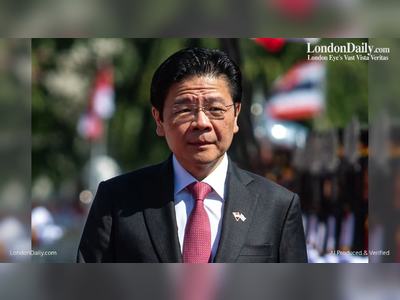China and Russia Deploy Seductive Espionage Networks to Infiltrate U.S. Tech Sector
“Honey-trap” tactics and startup pitch schemes form new front in intelligence war targeting American tech professionals
U.S. counterintelligence officials warn that China and Russia are increasingly relying on “honey-trap” operations, in which attractive women and fabricated romantic or business relationships are used to entice U.S. tech professionals and gain access to sensitive information.
The tactic, described by one expert as “social espionage” rather than Cold War spycraft, is being deployed at scale across Silicon Valley and the broader innovation ecosystem.
According to interviews with intelligence experts, dozens of unsolicited LinkedIn requests have been received by U.S. tech industry figures from young women claiming to be investors or startup founders.
One veteran intelligence officer said two such women, both arriving at a Virginia-based investment conference, held detailed briefing materials and tried to enter the event despite having no official credentials.
The espionage effort runs in parallel with other methods attributed to Beijing and Moscow, including startup pitch competitions organised abroad in which American entrepreneurs are invited to present ideas in exchange for funding—only to be pressured into handing over intellectual property or relocating activity.
U.S. officials estimate commercial espionage costs taxpayers and private firms hundreds of billions of dollars annually.
The Federal Bureau of Investigation notes that “economic espionage” and the theft of trade secrets linked to the Chinese state remain its top counterintelligence priority.
One report estimates that more than half of the espionage cases in recent years have involved Chinese actors, with Russia also playing a significant role.
In the new espionage model, civilian proxies such as business investors, graduate students and social media contacts replace traditional undercover agents, making detection harder and response more complex.
One former official described the shift as: “We’re not chasing a KGB agent in a smoky guesthouse anymore”—the adversary now uses ordinary-looking individuals embedded in social and professional networks.
Start-ups backed by U.S. defence-funded research are singled out for this tactic.
Investors from overseas are sometimes given minority stakes in such companies, gaining access while avoiding immediate scrutiny—then customised efforts are made to collect data or shift operations abroad.
Senate investigations recently found that several small business innovation grants went to companies with links to foreign interests.
U.S. officials caution that younger, ambitious tech professionals and academics may be particularly vulnerable to these approaches, which blend romance, business opportunity, travel and social media engagement.
The message: in an era of escalating technical competition, espionage has migrated into the social sphere—and the frontline now includes dating apps, business networks and startup forums.
As the U.S. government steps up warnings and oversight, private firms are being urged to tighten vetting of foreign investment, carefully monitor social-media outreach and robustly protect intellectual-property flows—else risk exposure not only to cyber-threats but to a subtle, human-network infiltration strategy that may reshape industrial espionage for years ahead.
The tactic, described by one expert as “social espionage” rather than Cold War spycraft, is being deployed at scale across Silicon Valley and the broader innovation ecosystem.
According to interviews with intelligence experts, dozens of unsolicited LinkedIn requests have been received by U.S. tech industry figures from young women claiming to be investors or startup founders.
One veteran intelligence officer said two such women, both arriving at a Virginia-based investment conference, held detailed briefing materials and tried to enter the event despite having no official credentials.
The espionage effort runs in parallel with other methods attributed to Beijing and Moscow, including startup pitch competitions organised abroad in which American entrepreneurs are invited to present ideas in exchange for funding—only to be pressured into handing over intellectual property or relocating activity.
U.S. officials estimate commercial espionage costs taxpayers and private firms hundreds of billions of dollars annually.
The Federal Bureau of Investigation notes that “economic espionage” and the theft of trade secrets linked to the Chinese state remain its top counterintelligence priority.
One report estimates that more than half of the espionage cases in recent years have involved Chinese actors, with Russia also playing a significant role.
In the new espionage model, civilian proxies such as business investors, graduate students and social media contacts replace traditional undercover agents, making detection harder and response more complex.
One former official described the shift as: “We’re not chasing a KGB agent in a smoky guesthouse anymore”—the adversary now uses ordinary-looking individuals embedded in social and professional networks.
Start-ups backed by U.S. defence-funded research are singled out for this tactic.
Investors from overseas are sometimes given minority stakes in such companies, gaining access while avoiding immediate scrutiny—then customised efforts are made to collect data or shift operations abroad.
Senate investigations recently found that several small business innovation grants went to companies with links to foreign interests.
U.S. officials caution that younger, ambitious tech professionals and academics may be particularly vulnerable to these approaches, which blend romance, business opportunity, travel and social media engagement.
The message: in an era of escalating technical competition, espionage has migrated into the social sphere—and the frontline now includes dating apps, business networks and startup forums.
As the U.S. government steps up warnings and oversight, private firms are being urged to tighten vetting of foreign investment, carefully monitor social-media outreach and robustly protect intellectual-property flows—else risk exposure not only to cyber-threats but to a subtle, human-network infiltration strategy that may reshape industrial espionage for years ahead.









